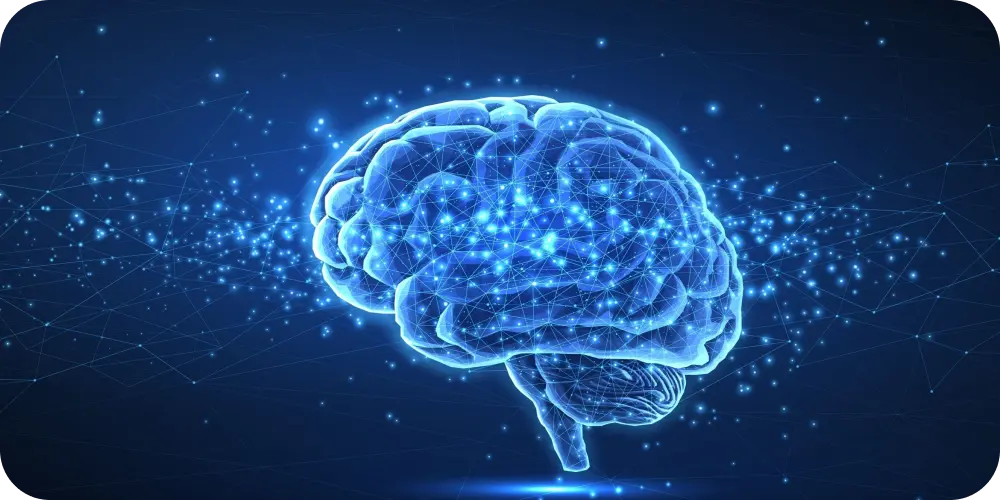The Ultimate Guide to Cognitive Health: Tips for Mental Wellness
Mene Mestanas
Are you on a mission to boost or maintain your cognitive health? Look no further because this guide is your go-to resource for all things brainy and wellness-related. We’ve got you covered with tips and tricks to support your mental game, from the basics of cognitive health to practical advice on what to eat, how to move, and ways to keep your mind buzzing with activity.
Key Takeaways
- Cognitive health is key to feeling great at any age, and it's shaped by a mix of genetics, your environment, and how you live your life.
- Keeping active and taking care of your physical health can do wonders for your brain, helping you stay emotionally balanced and resilient against those pesky cognitive declines.
- Staying mentally engaged, nurturing your social life, and managing stress are all superstar strategies for keeping your mind in tip-top shape and building cognitive reserves.
Understanding Cognitive Health
So, what exactly is cognitive health? It’s all about your ability to think, learn, and remember stuff clearly. It’s like keeping your brain in peak condition, covering everything from attention and learning to memory and decision-making. It’s not just for the older crowd; it matters at every stage of life.
A bunch of things influence your cognitive health, like your genes, surroundings, and lifestyle choices. Having a positive mindset, staying physically fit, and being socially active are big-time contributors to a healthy brain. Knowing these factors means you can take charge and reduce the risk of serious cognitive issues as you age.
Regular check-ins with cognitive assessments can help you spot any early signs of decline. These assessments are like a roadmap for understanding how well you can reason, solve problems, and make decisions, giving you a clear picture of your cognitive health journey.

Physical Health and Its Impact on the Brain
Your physical health is like the foundation for a healthy brain. When you exercise, you’re not just toning muscles and keeping your heart happy; you’re also boosting your brain’s resilience against cognitive decline. People who keep active tend to experience cognitive decline at nearly half the rate compared to those who don’t.
Emotional stability, closely linked to physical health, is crucial for overall wellness. It supports your brain function and helps prevent cognitive decline, keeping you feeling fabulous inside and out.
Managing High Blood Pressure for Cognitive Health
Keeping an eye on your blood pressure, especially in your middle years, can significantly lower the risk of cognitive decline as you age. High blood pressure is a major player in cognitive health issues, leading to conditions like Alzheimer’s due to damage to the brain’s small blood vessels (1). So, managing your blood pressure is a must for keeping your brain in top shape.
Doctors often suggest lifestyle tweaks like regular exercise, a balanced diet, and, if needed, medication to keep blood pressure in check. For instance, cutting back on sodium by about 1,000 mg daily can make a big difference, supporting your cognitive health (2).
Taking charge of your blood pressure ensures better blood flow to your brain, reducing cognitive impairments and boosting brain health. It’s all about maintaining cognitive performance and building that all-important cognitive reserve for long-term wellness.

Nutrition for a Healthy Brain
Eating right plays a crucial role in cognitive health by providing your brain with essential nutrients. A nutritious diet, rich in fruits, vegetables, whole grains, lean proteins, and healthy fats, can help reduce the risk of cognitive decline and promote overall brain health. Incorporating foods like berries, leafy greens, nuts, and fish into your meals can significantly benefit your brain function.
It's equally important to limit the intake of unhealthy foods, such as those high in saturated fats, sugars, and processed ingredients. Moderation is key to maintaining a healthy brain and enhancing cognitive abilities while avoiding the pitfalls of a poor diet.
A balanced diet not only fuels your body but also nourishes your brain, helping you maintain good cognitive function throughout life. By making mindful food choices, you can build cognitive reserve and support brain health, paving the way for a vibrant mental future.
Tip: Add Inara's fast-melt powder to your daily diet. With ingredients your body loves, it helps support natural communication between your gut and brain, assisting with gut health and appetite regulation.
The Role of Physical Activity in Cognitive Function
Getting moving is a game-changer for cognitive abilities like thinking, learning, and problem-solving. Even short bursts of moderate to vigorous activity can give your brain a boost, improving memory and reducing anxiety. Physical activity is a powerhouse for maintaining cognitive health and keeping decline at bay.
Studies show that those who skip regular exercise are nearly twice as likely to face cognitive decline compared to active folks (3). Regular activity not only sharpens memory and reduces anxiety and depression but also supports overall brain health, making it a must for cognitive wellness.
Mental Stimulation and Cognitive Training
Keeping your brain engaged with mental stimulation and cognitive training is vital for maintaining cognitive health. Dive into activities like quilting, digital photography, music, theatre, dance, or creative writing to boost cognitive reserve and keep your brain active. These activities help ward off age-related memory loss.
Research shows that those trained in reasoning and processing speed experience less decline in cognitive abilities (4). While computer-based brain-training apps might not be as effective as traditional methods, staying mentally active through creative and intellectually engaging activities is crucial for healthy cognitive function and brain health.

Social Interaction and Cognitive Health
Staying socially connected is a big player in cognitive health. More social engagement means better cognitive and mental well-being, reducing the risk of cognitive decline. Social interactions can lift your mood and improve sleep quality, lowering dementia risk.
Keeping in touch with family and friends supports cognitive function and protects your brain from the downsides of isolation. Little social activity or being alone can lead to cognitive decline, while strong social ties can reduce inflammation markers linked to cognitive decline and promote brain health.
Sleep and Cognitive Performance
Sleep is a big deal for cognitive health, especially for memory consolidation and overall performance. Specific sleep stages, like slow-wave sleep, help organise and integrate memories, making good sleep essential for learning and cognitive function. Not getting enough sleep can mess with memory retention, hindering cognitive performance.
Chronic sleep deprivation is linked to a higher risk of cognitive decline and conditions like dementia. Lack of sleep can impair decision-making and emotional control, leading to difficulties in various cognitive processes. A good night’s sleep is vital for healthy cognitive function and brain health.

Stress Management for Cognitive Wellness
Managing stress effectively is crucial for cognitive health. Techniques like:
- deep breathing
- yoga
- meditation
- progressive muscle relaxation
- visualisation
Incorporating relaxation practices can improve focus and mood, contributing positively to cognitive wellness. Avoiding stress triggers like smoking, alcohol, and excessive caffeine is essential for managing stress effectively. Adding these techniques to your routine enhances cognitive health and prevents decline.
Regular Cognitive Assessments
Routine cognitive assessments can catch cognitive decline early and ensure timely intervention. These assessments provide a way to monitor cognitive health over time, especially in ageing populations.
If initial screenings are inconclusive, comprehensive neuropsychological evaluations might be needed. Cognitive assessments evaluate functions like memory, executive function, and attention, helping to differentiate between types of cognitive impairment and informing care strategies.
Summary
Cognitive health is a multi-faceted part of our overall wellness, influenced by factors like physical health, nutrition, social interaction, sleep, and stress management. By understanding and addressing these factors, we can maintain and enhance our cognitive function, preventing decline and promoting long-term brain health.
Investing in cognitive health today ensures a vibrant and mentally sharp future. Through proactive measures like regular physical activity, a balanced diet, mental stimulation, and social engagement, we can build cognitive reserve and support healthy brain function. Remember, a healthy mind is the gateway to a fulfilling and enriched life.
Frequently Asked Questions
What is cognitive health?
Cognitive health is your ability to think, learn, and remember effectively, including crucial brain functions like attention, memory, language, and executive function. It’s essential for overall mental well-being.
How does physical health impact cognitive health?
Physical health impacts cognitive health significantly. Regular physical activity boosts cognitive abilities and emotional stability, helping to prevent cognitive decline. Maintaining good physical health is essential for supporting brain function.
SOURCES
1. National Institute of Aging
https://www.nia.nih.gov/health/alzheimers-causes-and-risk-factors/what-happens-brain-alzheimers-disease
2. American Heart Association
https://www.heart.org/en/healthy-living/healthy-eating/eat-smart/sodium/how-much-sodium-should-i-eat-per-day
3. Alzheimers Society
https://www.alzheimers.org.uk/about-dementia/managing-the-risk-of-dementia/reduce-your-risk-of-dementia/physical-activity
4. National Institute of Aging
https://www.nia.nih.gov/health/brain-health/cognitive-health-and-older-adults



